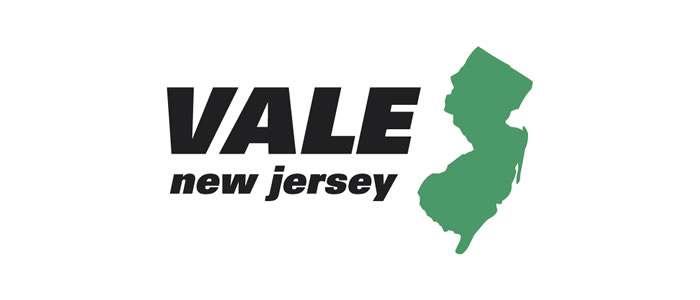Edge works diligently to bring different entities together for a common goal of building a robust and comprehensive array of technology solutions for the state of New Jersey. One such example of common goal building serves as the inspiration behind the partnership with the Virtual Academic Library Environment (VALE) in January 2015.
Based on its commitment to sustaining a vibrant, healthy, and thriving technology ecosystem in the state, VALE was a component birthed from state institutions wanting to find an efficient manner for collection, building and leveraging economies of scale. Previously, New Jersey didn’t have an academic library consortium like other states, as there were certain dynamics preventing the consortium process. The challenges, however, didn’t thwart collaboration and innovation from taking place and
it’s why VALE was created in 1998 from funding by New Jersey Higher Education Technology Infrastructure Bond funds, matching institutional dollars and a grant from the New Jersey State library. At that time, VALE offered subscriptions for four electronic databases to 45 members from all academic sectors.
 VALE grew as a grassroots organization, with supporters desiring to get better deals on large-scale commercial packages within the technological world. Success, in VALE’s case, meant providing valuable assets such as information resources and databases, as well as the development of inter-institutional information connectivity and collaborative library application projects for New Jersey academic libraries.
VALE grew as a grassroots organization, with supporters desiring to get better deals on large-scale commercial packages within the technological world. Success, in VALE’s case, meant providing valuable assets such as information resources and databases, as well as the development of inter-institutional information connectivity and collaborative library application projects for New Jersey academic libraries.
Through the years, VALE has grown by leaps and bounds, as it helps institutions meet the demands of faculty and students and provides ready access to scholarly materials. Through leveraged purchasing and cooperation and through the use of technology and collaboration, VALE provides the needs of New Jersey institutions through a seamless network of access shared electronic academic information. VALE also hosts an annual Users’ Conference, which this year was called “Innovate, Create, Collaborate: Moving Libraries Forward” and took place on January 5, 2018.
“Edge was the professional development entity for academic librarians in the state, so there are years and years of rubbing shoulders with various committees that have wedded together in ways that normally wouldn’t have happened,” said Joe Toth, J.D., Director of Library Services, Chair, VALE Executive Committee, Stockton University. “It’s hard to say what all of this translated into personally, but it’s been very meaningful, especially through friendships I’ve made with colleagues in VALE which have been extremely valuable. You have a working cohort you can call on when you have a need.”
These public institutions do similar things, whether it’s digitalization, cataloging, and storing. There can be a lot of duplication of effort, so VALE is helping facilitate an institutional repository. Toth said there is even more collaboration potential and considers the possibility of using NJEdge’s illumira® platform to bring it to fruition. Another opportunity is to look at different ways to create a storage facility where all items, including print, can be kept and accessible for public institutions. Institutions are also storing less onsite, but still require the need to keep the information. FOLIO, open-source software for the integrated library system, is also being considered as an option.
Another compelling benefit of VALE is the consortium purchasing model for acquiring highly demanded databases. This model helps everyone involved with VALE and explains why the program is looking for other ways to assist higher education in the state. Some interest from members is doing more resource sharing amongst each other, as well as facilitating at the consortia level open education resources by joining the Open Textbook Network. This will allow VALE to host events in the state that promote OERs and provide support to smaller institutions that would like to get involved on a more granular level.
OER involvement is becoming more popular in the state, although VALE members are at different points along the path. For instance, Passaic County Community College is farther along than others, as they have their whole degree program using OER textbooks and their honors program is quickly moving in that direction. There is also state legislation on the books this year, as legislators consider a bill that mandates higher education institutions to have a plan that incorporates OER materials at their institutions.
VALE would like to plug into this momentum and act as a clearinghouse for information and host workshops
in professional development. There is a lot of information sharing and organization at the consortia level. Toth believes that more students will also be a proponent of OER programs, similar to how Rutgers Student Senate encouraged their institution.
“I think you’re going to see pressure coming from students statewide, and we can help foster that by creating awareness among faculty,” Toth said. “Even bookstores are willing to work with institutions that are instituting OER programs. There’s still going to be freedom of choice among faculty and no one is going to mandate its use, but we want to help those that do find value in using OER.
Edge is helping VALE with a lot of the collaboration and growing process, especially since they provide 501(c)(3) status. The connection with Edge enables VALE to pursue projects they couldn’t legally do in the past.
“We couldn’t even float an RFP in the past as an institution. We had to do so through other member institutions, and it was always secondhand. Now that we’re part of Edge, we can do that through them,” Toth said. “The Edge relationship allows VALE to do more things. We have more potential and can even think about going statewide sooner and going beyond just purchasing.”
Due to the organizations continued growth and partnership, VALE now has a new website at vale.njedge.wpengine.com, and recently hired their first full-time employee. Toth is excited with VALE’s possibilities and how it’s going to provide countless benefits to New Jersey.
“Higher education is growing, and with VALE, we can help all institutions in New Jersey, no matter their size,” Toth said. “We can provide expertise with each other, as well as the organizing of information and resources. VALE can be the facilitator for information resources and collections and possibly sometime in the future a shared print storage repository.”


